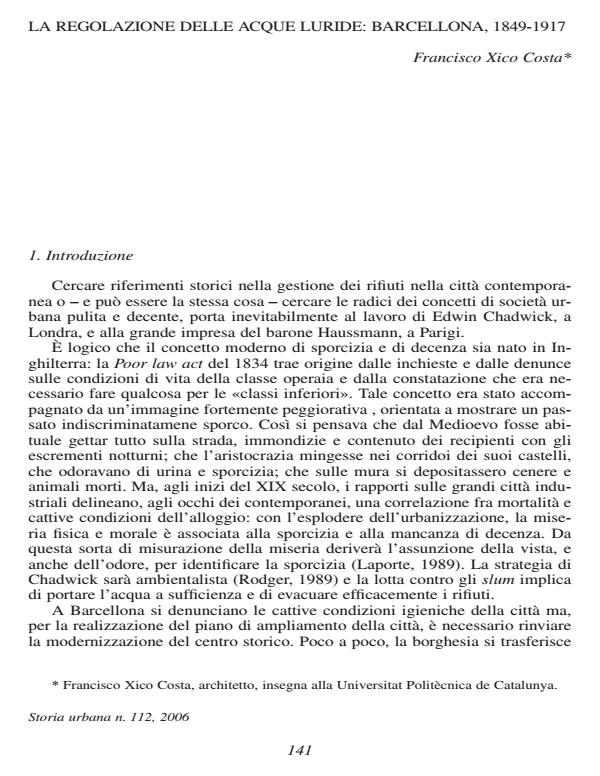La regolazione delle acque luride, Barcellona, 1849-1917
Titolo Rivista STORIA URBANA
Autori/Curatori Francisco Xico Costa
Anno di pubblicazione 2007 Fascicolo 2006/112
Lingua Italiano Numero pagine 25 P. 141-165 Dimensione file 1887 KB
DOI
Il DOI è il codice a barre della proprietà intellettuale: per saperne di più
clicca qui
Qui sotto puoi vedere in anteprima la prima pagina di questo articolo.
Se questo articolo ti interessa, lo puoi acquistare (e scaricare in formato pdf) seguendo le facili indicazioni per acquistare il download credit. Acquista Download Credits per scaricare questo Articolo in formato PDF

FrancoAngeli è membro della Publishers International Linking Association, Inc (PILA)associazione indipendente e non profit per facilitare (attraverso i servizi tecnologici implementati da CrossRef.org) l’accesso degli studiosi ai contenuti digitali nelle pubblicazioni professionali e scientifiche
This article is based on an historical approach to the management of sanitation in the contemporary city. Flow and network are concepts that characterised modern cities, in terms of relation systems, urban functionalities and space conflicts. Between these flows, there are those unequivocally related with the modernization of the city electricity i. e. but also those garbage collection and sanitation that established conflicts between different types of interests. This kind of conflicts are particularly evident in the case of improvement of sewers, which reshaped the relations between public and private, in terms of spaces, social structures and political approaches. The case study of Barcelona, with its hierarchal but also relative disrupted organization, show how the adoption of a system of tout-à-l’égout, after a long debate throughout the XIX century, represented the beginning of a model for many aspects unsustainable.
Francisco Xico Costa, La regolazione delle acque luride, Barcellona, 1849-1917 in "STORIA URBANA " 112/2006, pp 141-165, DOI: